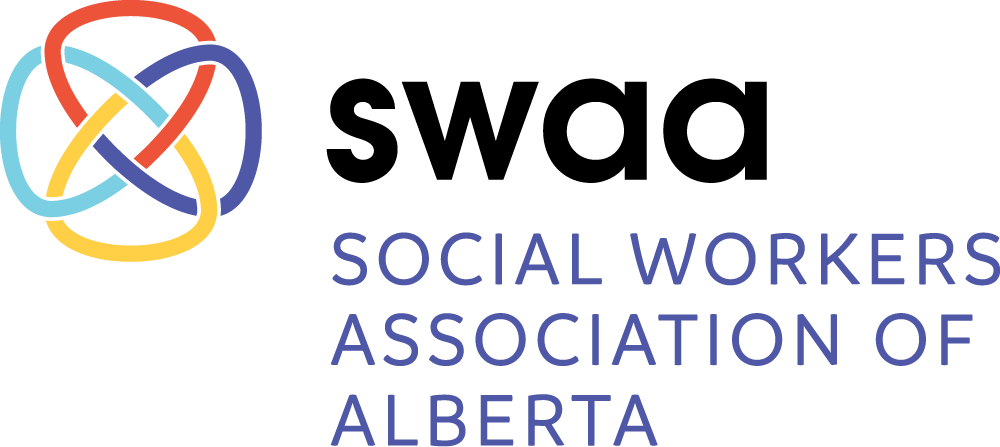What is Social Work?
What is social work?
Social work is a regulated profession committed to making society more equitable and inclusive. Social work is dedicated to improving the functioning of individuals, families, and communities. Social workers can work in a variety of settings such as healthcare, education, child welfare, public policy, non-profits, and the judicial system.
Who do we serve?
Social workers serve the public and promote the well-being of all people. They abide by the code of ethics of their respective professional associations, such as the Canadian Association of Social Workers (CASW), which maintains the integrity and professionalism of social work practice. In Alberta, the Alberta College of Social Workers (ACSW) plays a crucial role in protecting the public by ensuring the competency of social workers and their adherence to ethics and standards of practice. Regardless of the specific code of ethics they follow, social workers have the important responsibility of advocating for marginalized populations. According to UNESCO (2009), marginalization is ‘a form of acute and persistent disadvantage rooted in underlying social inequalities’ (p.1). In Canada marginalized groups include racialized and Indigenous populations, the disability community, and the 2SLGBTQ+ community. Furthermore, the Canadian charter of rights and freedoms lists protected groups who should be free from discrimination “in particular without discrimination based on race, national or ethnic origin, colour, religion, sex, age or mental or physical disability” (Canadian Charter of Rights and Freedoms, 1982, section 15, para.1). Social workers also advocate for those individuals living in poverty, those experiencing houselessness, and people struggling with addictions also face systemic barriers and are considered structurally marginalized.
How to become a Social Worker?
To become a social worker in Alberta registration with the Alberta College of Social Workers (ACSW) is mandatory. Only those registered with the (ACSW) can use the protected title Registered Social Worker (RSW). To become registered a combination of post-secondary education and experience is required. The ACSW provides a list of accreted social work programs in Alberta and Canada. A diploma in social work, bachelor’s in social work (BSW), or master’s in social work is the standard education required to become a (RSW). (MSW) level social workers can specialize in clinical social work (RCSW) and perform mental health therapy in various private and public settings.
Why are social workers important?
Social workers provide essential services to the public and are an integral part of Canadian welfare system. Social work can be understood through three different levels of practice. Micro mezzo and macro. Micro social work is concerned with individuals and helping clients or patients overcome barriers. They can also provide peer support and act as a navigator. This can include individual therapy or the creation of individual treatment plans. Social workers can also work in addictions, peer support, housing, and disabilities. Mezzo social work is focused on providing support for groups and communities. Social workers can work collaboratively with communities and act as a bridge to connect services. Social workers can act as consultants for non-profits and offer guidance and support. Social workers can also analyze service delivery and explore how it affects communities. Macro social work or structural social work advocates for systemic change and advocates for policies that will benefit marginalized populations. Macro social workers analyze oppressive structures like colonization or institutional racism. Macro social workers can operate in government from municipalities to the federal government working on equitable and inclusive legislation and policy. Macro social workers can also work in non-profits, think tanks and professional associations with a focus on influencing policy to serve society.
Written by SWAA Member and BSW Practicum Student, Isaac Towsley.
References
ACSW. (2023). Standards of Practice. Alberta College of Social Workers. acsw.in1touch.org/uploaded/web/ACSW%20Council/ACSW%20Standards%20of%20Practice%202023.pdf
ACSW. (2024). Credentials - ACSW. Alberta College of Social Workers. acsw.ab.ca/site/Credentials?nav=sidebar
CASW. (2024). Canadian Association of Social Workers Code of Ethics, Values and Guiding Principles 2024. CASW ACTS. Retrieved March 3, 2024, from casw-acts.ca/files/attachements/CASW_Code_of_Ethics_Values_Guiding_Principles_2024_0.pdf
Canadian Charter of Rights and Freedoms, Part I of the Constitution Act, 1982, being Schedule B to the Canada Act 1982 (UK), 1982, c 11.
UNESCO. (2009). Tenth Meeting of the Working Group on Education for All (EFA) Concept Paper on Marginalization Paris, 9-11 December 2009. United Nations Educational Scientific Cultural Organization. unesdoc.unesco.org/ark:/48223/pf0000188679
